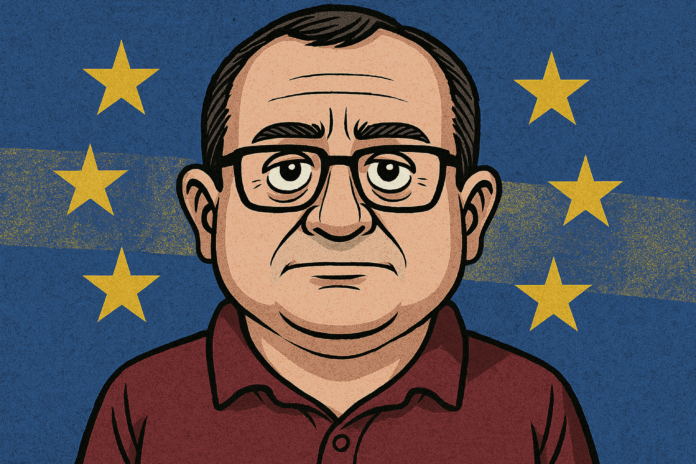In a move that has triggered alarm across Slovakia’s Western alliances, Prime Minister Robert Fico became the sole leader of any European Union or NATO member state to attend Russia’s 9 May 2025 Victory Day commemorations in Moscow—an act foreign policy analyst Alexander Duleba describes as a direct legitimisation of the Kremlin’s ongoing war against Ukraine and a strategic shift that isolates Slovakia within the Euro-Atlantic community. The visit, which violated a 2022 EU Council agreement prohibiting contact with Russian officials, follows an earlier December 2023 trip and has drawn condemnation from EU partners, including the Baltic states, which refused Fico’s aircraft transit. According to Duleba, Fico’s presence—however symbolically ambiguous—offers Russian President Vladimir Putin a propaganda victory, undermines Slovakia’s access to critical EU economic and security frameworks, and confirms a deepening political alignment with Hungary’s increasingly pro-Kremlin stance. While Deputy Prime Minister Peter Kmec conceded the visit benefits Fico’s party rather than the country, Duleba argues it reflects a broader abandonment of foreign policy in favour of domestic populism, rooted in longstanding Russophile sympathies and electoral dependency on Slovakia’s anti-system, pro-Russian electorate.
Slovak foreign policy analyst Alexander Duleba warns that Prime Minister Robert Fico’s recent visit to Moscow places Slovakia on a collision course with EU and NATO allies, echoing Hungary’s path under Viktor Orbán. According to Duleba, Slovakia is now perceived as a security liability by its Western partners.
Fico, the only leader from the EU or NATO to attend Russia’s 9 May 2025 Victory Day commemorations, crossed a second red line by visiting Moscow after a similar trip in December 2023. Both visits violated a 2022 EU agreement to avoid contact with Russian officials amid the war in Ukraine. Duleba argues that by accepting President Vladimir Putin’s invitation, Fico legitimised Russia’s war narrative.
Although the prime minister avoided the main military parade and declined to wear the St. George ribbon, he participated in a wreath-laying ceremony beside Putin. Duleba dismisses these omissions as superficial gestures, stating, “From the EU’s perspective, the only thing that matters is that he was there.”
Duleba attributes the visit to domestic political motives, aimed at securing imagery with Putin for Fico’s electorate. He cites Deputy Prime Minister Peter Kmec’s view that the visit benefitted the ruling party but damaged the country. Duleba concurs, identifying threats to both prosperity and security.
Economically, Slovakia derives over 15% of its GDP from EU single market membership, according to the Slovak National Bank—an advantage Duleba argues cannot be replaced by Russian trade or Chinese investment. Nearly 90% of public investment depends on EU funds. He warns that Fico’s antagonism toward Brussels jeopardises this foundation.
In terms of security, Slovakia has been excluded from high-level EU discussions since February 2024. Duleba states that Fico’s stance obstructs consensus on defence and sanctions, placing Slovakia alongside Hungary in a bloc that impedes joint decisions crucial to European stability.
The analyst links Fico’s orientation toward Moscow to longstanding sympathies, citing his support for Russian narratives since the 2008 war in Georgia. Duleba recalls how earlier foreign ministers, including Ján Kubiš and Miroslav Lajčák, mitigated these tendencies, but the current government offers no such balance. “This government,” he says, “has no foreign policy—only domestic politics.”
Fico’s post-2018 shift toward the far right followed his resignation amid mass protests after the murder of journalist Ján Kuciak. With moderates splitting off to form Hlas, Fico reoriented toward anti-system voters, who, in Slovakia, are predominantly pro-Russian. Duleba describes this as a unique cultural phenomenon linked to Slovak nationalist identity.
Duleba contrasts this with Baltic states’ refusal to permit Fico’s overflight, noting their memory of Soviet occupation. He highlights Slovakia’s lack of reflection on its own role in WWII, including its participation in the 1939 invasion of Poland and atrocities committed by Slovak divisions in Ukraine. The analyst finds it troubling that this history is absent from national discourse.
Fico’s rhetoric, which separates Soviet-era liberation from Russia’s current war in Ukraine, mirrors the Kremlin’s attempt to fuse past and present into an ideological continuum. Duleba emphasises that Russia’s 9 May holiday functions as a state ritual reinforcing wartime mobilisation. Fico’s participation, he argues, affirms this narrative.
The Kremlin is expected to exploit Fico’s presence as proof that it is not isolated. Duleba notes that while past celebrations drew only authoritarian leaders, this year’s event featured both Chinese President Xi Jinping and the Slovak prime minister—symbols of strategic alignment against the West.
Citing German policy proposals to sanction EU states that block collective decisions, Duleba warns that allies will not tolerate internal threats to cohesion and security. “You cannot be a security risk to partners who guarantee your prosperity and safety. That’s madness.”
Although some protesters label Fico a “collaborator,” Duleba refrains from this term, stating there is no evidence of material benefit from Russia. He concludes that Fico’s alignment stems from personal ambition, ideological preference, and political strategy—regardless of national consequences.
Source: Dušan Mikušovič | Denník N



